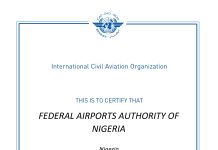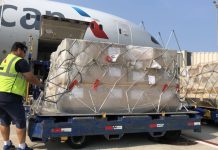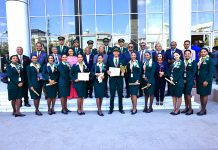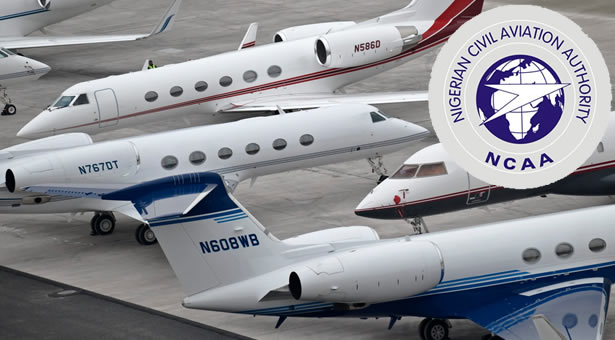Domestic flight operations rose by 23.7 per cent in 2018, figures obtained from the Nigerian Civil Aviation Authority have shown.
The figures showed that domestic airlines operated 59,818 flights from January to December 2018, compared to 48, 319 flight operations recorded in 2017.
The number of airline operators on the domestic route also increased from eight in 2017 to nine in 2018.
According to the NCAA statistics, from January to December, 2018, domestic airlines recorded inbound passengers of about 5, 033, 669 while outbound passengers were 5, 058, 974.
The statistics also showed that Air Peace operated the highest number of flights at 22, 055 followed by Arik Air at 15, 205 and Dana Air at 5, 944.
Max Air and suspended airline, First Nation Airways, recorded the lowest number of flight operations at 2, 205 and 445, respectively.
All the domestic airlines put together recorded 36, 350 flight delays, up from 30, 214 delayed flights recorded in 2017 while about 544 flights were cancelled from January to December, 2018, down from the 872 cancelled flights recorded in 2017.
The 34 airlines operating on international routes, on the other hand, recorded 15, 645 flights in 2018, accounting for a 15.8 per cent increase from 13, 503 recorded in 2017.
The international airlines also recorded 1, 994, 099 and 2, 084, 980 inbound and outbound passengers, respectively, up from the 1, 750, 184 and 1, 825, 358 passengers recorded for inbound and outbound passengers, respectively in 2017.
The International Air Transport Association had said in early 2018 that airlines should expect a rise in passenger numbers to 4.3 billion globally.
The association noted that the figure would be a +6.0 per cent rise from the 4.1 billion passengers recorded in 2017.
The Media and Communications Manager of Dana Air, Mr Kingsley Ezenwa, said the rise in the number of flight operations was due to airlines’ expansion such as an increase in the number of aircraft.
“Many airlines expanded their operations; such expansion comes with more routes and flights. Last year, some airlines also introduced new rates, some bought new aircraft, so operations are bound to increase when you have these in place,” he said.
He stated that as the year before the general elections, with many peak periods, 2018 helped many airlines to boost their flight operations.
Aviation analyst and the Chief Executive Officer, Aglow Limited, Mr Tayo Ojuri, said one of the major factors that influenced the increase in passenger, aircraft and cargo movement in 2018 was an uptick in the economic activities of the country.
Quoting a report by PricewaterhouseCoopers, he said Nigeria recorded a Year-on-Year Gross Domestic Product growth of 1.9 per cent in 2018.
He said, “The increase in GDP was engendered by various factors such as the decline in the inflation rate, increased inflow of foreign exchange, increase in oil output and oil price, and increase in business activity.
“This upswing in economic activities increased the purchasing power of people in the country and this influenced the passenger, aircraft and cargo movement. Another key factor that influenced the increase in passenger traffic was liberalisation in the Nigerian aviation market and the Nigeria business environment.”
He stated that the review and introduction of various aviation policies, such as the visa on arrival policy, which influenced the number of passenger traffic, also significantly improved the aviation market.
The visa policy, he said, helped to increase the number of tourists and business people that traversed Nigerian airports in 2018, positively influencing the total frequencies of both domestic and international airlines in the country.













